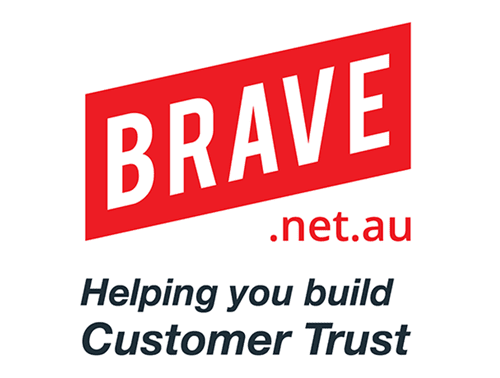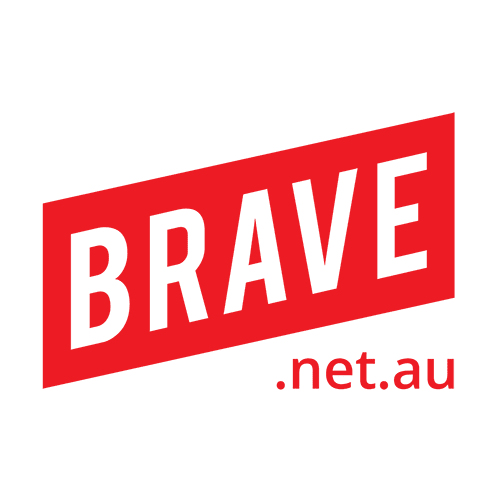Understanding the search behaviors of visitors on your website is essential for optimising user experience and effectively addressing their needs. This article examines the concept of website search tracking, its importance, and the tools available for monitoring search behavior efficiently.
We provide a comprehensive guide for the setup process and offer practical advice for analysing the data collected. By leveraging these insights, you can enhance user engagement, refine your content strategy, and achieve improved results for your website.
What is Website Search Tracking?
.jpg_00.jpeg)
Website search tracking is an essential component of website analytics that entails the monitoring and analysis of search queries entered by users on a site. By implementing effective search tracking mechanisms, businesses can obtain valuable insights into user behaviour, allowing them to identify the specific search terms that drive visitors to their content.
This data is instrumental in optimising the overall user experience and refining content strategies to align with user intent, thereby enhancing website performance and engagement.
Why is Website Search Tracking Important?
Website search tracking is a crucial component for understanding user intent and optimising content effectively. By analysing search queries and user behaviour, organisations can refine their SEO strategies, enhance content visibility, and increase conversion rates.
This process involves utilising data visualisation tools to analyse visitor statistics and identify trends that can significantly impact the success of a website’s content strategy.
What Tools Can I Use to Track Website Searches?
There are numerous effective tools available for tracking website searches, each offering distinct capabilities that can enhance the understanding of user behaviour. Google Analytics, for example, offers a comprehensive analytics dashboard that enables the monitoring of site performance, tracking of search queries, and analysis of user engagement.
Furthermore, utilising Google Search Console can improve keyword tracking efforts and provide valuable insights into search visibility and performance metrics.
1. Google Analytics
Google Analytics serves as a powerful tool for tracking website searches and analysing user demographics, enabling businesses to gain valuable insights into their traffic sources and performance metrics. Its robust data analysis features allow users to effectively monitor search patterns and user engagement, thereby optimising site performance and enhancing the overall user experience.
By utilising its comprehensive analytics dashboard, marketers can conduct in-depth analyses of metrics such as session duration, bounce rates, and conversion goals. These insights facilitate the identification of which traffic sources generate the most visitors, whether through organic search, social media, or paid advertising.
Furthermore, understanding user demographics, including age, gender, and geographical location, enables website owners to customise content and marketing strategies in order to more effectively connect with their target audience. This level of granularity enhances decision-making processes, ultimately resulting in more effective campaigns and improved return on investment.
2. SEMrush
SEMrush is a comprehensive SEO tool that excels in keyword research and competitor analysis, providing valuable insights into search visibility. Through the utilisation of SEMrush, businesses can effectively track keyword performance, assess their rankings, and refine their content strategies to enhance user engagement and site analytics.
This powerful platform offers a suite of features designed to streamline the SEO process, including in-depth keyword tracking that assists in identifying high-performing phrases and topics. Its competitor analysis tools enable users to benchmark their website against industry leaders, thereby revealing gaps in strategies and highlighting opportunities for improvement.
SEMrush further supports the optimisation of overall SEO tactics by providing comprehensive site audits, backlink tracking, and content optimisation suggestions. By leveraging these diverse capabilities, businesses can significantly enhance their online presence, effectively target their audience, and drive increased organic traffic to their websites.
3. Ahrefs
Ahrefs is widely recognised for its exceptional backlink analysis capabilities; however, it also provides a comprehensive suite of tools for tracking keyword performance and analysing search metrics. By utilising Ahrefs, users can attain deeper insights into their site traffic, comprehend user search behaviour, and enhance their content optimisation strategies.
This platform offers a robust amalgamation of both on-page and off-page SEO data, rendering it invaluable for marketers and webmasters alike. With features that facilitate thorough backlink audits, users can evaluate the strength and quality of their inbound links, identify harmful links, and uncover potential link-building opportunities.
Ahrefs’ keyword performance tracking allows individuals to identify high-performing keywords, assess traffic potential, and monitor rankings over time. By integrating these search metrics, users can gain a comprehensive understanding of their competition and tailor their strategies to enhance visibility and organic reach.
4. Moz
.jpg_01.jpeg)
Moz is a premier SEO tool that provides a comprehensive suite of features for keyword tracking and enhancing site performance. With a strong emphasis on search visibility, Moz enables businesses to gain insights into keyword dynamics and user behaviour, thereby allowing them to refine their SEO strategies for improved search engine results.
The robust keyword tracking system offered by Moz provides valuable insights into keyword rankings over time, assisting users in identifying the terms that drive traffic and conversions. Furthermore, Moz’s site performance analytics tools deliver essential metrics, including page load speed and mobile optimisation, ensuring that websites not only attract visitors but also offer a seamless user experience.
In conjunction with its competitor analysis features, Moz equips digital marketers with the tools necessary to remain ahead of industry trends, adapt their strategies accordingly, and enhance overall visibility. This comprehensive approach establishes Moz as an critical resource for individuals seeking to improve their online presence and leverage effective SEO practices.
How to Set Up Website Search Tracking?
Establishing website search tracking involves a series of steps designed to ensure accurate data collection and analysis of user engagement. By utilising tools such as Google Tag Manager, one can efficiently configure tracking settings to monitor site searches effectively.
Furthermore, incorporating the appropriate search query parameters facilitates the capture of valuable search data, thereby providing enhanced insights into user behaviour and preferences.
1. Set Up Google Analytics
To establish Google Analytics for tracking website searches, it is imperative to first create an account and integrate the tracking code into your website. This setup facilitates comprehensive monitoring, allowing for the collection of critical data regarding session duration, user navigation paths, and other performance metrics essential for analysing user behaviour.
After embedding the tracking code, it is important to configure your site to recognise internal searches by setting up the appropriate parameters within your Google Analytics settings. This customisation enables the monitoring of search queries, providing valuable insights into user intentions and interests.
Utilising features such as event tracking and goal setting can offer a detailed overview of how searches contribute to conversions. By gathering this data, businesses can make informed decisions aimed at enhancing user experience and driving engagement, ultimately leading to improved overall site performance.
2. Enable Site Search Tracking
Enabling site search tracking within Google Analytics requires a careful configuration of the view settings to recognise the internal search functionality of your website. By specifying the query parameters utilised for searches, one can effectively monitor query performance, thereby gaining valuable insights into user engagement and the overall effectiveness of the site’s content.
This process is essential as it facilitates a clear understanding of what users are actively searching for on the site, allowing for a refinement of the content strategy as needed. To properly implement this setup, it is necessary to access the admin settings in Google Analytics, navigate to the specific view intended for configuration, and locate the ‘View Settings’ section.
Once there, it is important to enable the ‘Site Search Tracking’ option and input the appropriate query parameters that distinguish internal searches from standard URLs. By following these steps, one ensures that the tracking tools can effectively capture user behaviours, ultimately leading to improved search functionality and enhanced user engagement throughout the website.
3. Add Search Query Parameter
Incorporating a search query parameter in Google Analytics is essential for accurately tracking user interactions with your site’s search functionality. By specifying the parameter that captures search terms, you facilitate precise data analysis concerning search patterns and user behaviour, which can inform content optimisation initiatives.
This process provides invaluable insights into the keywords utilised by visitors, thereby revealing their intent and preferences while navigating your website. Understanding these search queries can aid in identifying gaps within your content strategy and highlight opportunities for enhancement.
For example, if a considerable number of users are searching for information that is not readily available on the site, this signals a potential area for developing new content. Analysing search behaviours can significantly improve user experience by enabling better navigation and ensuring that relevant results are prioritised, ultimately leading to increased engagement and higher conversion rates.
How to Analyse Website Search Data?
Analysing website search data is an essential step in comprehending user engagement and optimising content effectively. By utilising search analytics tools, businesses can evaluate query performance, identify trends, and gain insights into user behaviour.
This process ultimately contributes to enhancing traffic analysis and improving overall site usability.
1. Identify Top Search Queries
.jpg_10.jpeg)
Identifying the most relevant search queries is crucial for comprehending user intent and optimising website content accordingly. By analysing these queries, businesses can evaluate keyword performance, assess search trends, and gather visitor statistics that inform future content strategies and improvements.
To effectively extract valuable insights, it is essential to leverage comprehensive analytics tools. These platforms enable businesses to track which phrases generate the most traffic, thereby allowing them to align their content with user expectations.
Monitoring search trends is beneficial for recognising seasonal fluctuations in queries, which guides timely content updates. Analysing visitor statistics provides a clearer understanding of audience behaviour, enabling the development of refined targeting and engagement strategies.
In summary, mastering the process of query analysis not only enhances content relevancy but also improves the overall user experience and satisfaction.
2. Analyse Search Exit Rates
Analysing search exit rates is essential for evaluating user behaviour and the effectiveness of a website’s search functionality. A high exit rate may suggest that users are unable to locate relevant content, necessitating a review of the bounce rate and overall website usability to enhance user engagement.
Understanding search exit rates offers valuable insights into user interactions following a search query. By assessing whether visitors leave immediately after conducting a search or navigate to other pages, one can evaluate the quality of search results and the relevance of the content provided.
This analysis not only identifies potential issues related to site navigation or content organisation but also illuminates broader aspects such as user engagement and satisfaction.
Optimising search functionality to reduce exit rates may involve enhancing content quality, improving layout aesthetics, or refining keyword strategies. Consequently, this ongoing evaluation process contributes to the creation of a more user-friendly environment and significantly increases return traffic.
3. Track Search Trends
Tracking search trends is crucial for understanding the evolving behaviours and preferences of users over time. By analysing search patterns, businesses can effectively adapt their content strategies, utilising data analysis and predictive analytics to remain ahead of market trends and address user needs.
This proactive approach not only facilitates the identification of topics that resonate with target audiences but also reveals latent demands that may not be immediately apparent. By continuously monitoring keyword performance and search queries, organisations can tailor their messaging, refine their offerings, and enhance user engagement.
The integration of advanced analytical tools will assist in discerning shifts in consumer interests, allowing brands to pivot quickly and strategically.
Ultimately, this continuous cycle of insight and adjustment cultivates a more relevant content ecosystem, ensuring that businesses can effectively connect with their audience in an ever-evolving digital landscape.
What Insights Can I Gain from Website Search Tracking?
Website search tracking offers critical insights into user intent, audience characteristics, and opportunities for content optimisation. By analysing user interactions with search functionalities, businesses can improve engagement rates, refine their organic search strategies, and develop content that effectively aligns with the preferences of their target audience.
1. User Intent
Understanding user intent is critical to the development of an effective content strategy, as it elucidates what users are genuinely seeking through their search queries. By thoroughly analysing this data, businesses can align their content with audience insights, which in turn enhances search metrics and engagement.
Recognising the various types of intent—whether informational, navigational, or transactional—further elevates the relevance of the content produced. This differentiation enables marketers to customise their approach based on the specific objectives users aim to achieve, such as acquiring information, locating a particular website, or making a purchasing decision.
As a result, leveraging these insights not only refines the content but also optimises its visibility in search engine results, thereby driving more targeted traffic and increasing conversion rates. Employing tools and methodologies to interpret search metrics can significantly inform content development, ensuring that it resonates effectively with the intended audience and meets their needs.
2. Popular Content
Identifying popular content is crucial for optimising web pages and enhancing user engagement. By analysing visitor statistics and traffic data, businesses can ascertain which content resonates most effectively with users, thereby enabling them to replicate successful strategies and improve overall engagement rates.
A thorough understanding of user interactions provides valuable insights into preferences and trends, facilitating the development of targeted content strategies. Examining metrics such as click-through rates and bounce rates can unveil deeper layers of user behaviour, revealing not only what attracts visitors but also what sustains their engagement.
This comprehensive analysis not only aids in refining existing content but also informs the creation of new material that aligns with the evolving interests of the audience. Ultimately, a strategic approach driven by robust analytics can foster sustained growth and enhance conversion rates.
3. User Behaviour
.jpg_11.jpeg)
Analysing user behaviour is essential for comprehending how visitors engage with your website and for identifying opportunities for improvement. By examining behaviour flow and session duration, organisations can obtain valuable insights that inform data analysis and enhance overall website usability.
This process enables organisations to identify friction points that may impede user engagement and conversion rates. By tracking user pathways, they can uncover patterns that indicate the effectiveness of their content in resonating with their audience.
Moreover, analysing session duration not only aids in assessing user interest but also correlates with the potential for content optimisation. Enhanced insights facilitate targeted adjustments that can significantly improve user satisfaction, ultimately leading to higher retention rates and increased loyalty.
Therefore, understanding these behaviours transcends mere metrics; it is about fostering a more seamless and rewarding experience for every visitor.
Frequently Asked Questions
What is website search tracking?
Website search tracking is a process of monitoring and analysing the keywords or phrases that visitors type into your website’s search bar. This helps you understand what information or products users are looking for on your website.
How can I see what people search on my website?
There are various tools and analytics platforms, such as Google Analytics, that allow you to track the search queries on your website. You can also use the built-in search tracking feature of your content management system (CMS) if available.
Why is it important to track website searches?
Knowing what people search on your website can provide valuable insights into their interests and needs. This information can help you improve your website’s user experience, optimise your content and products, and ultimately increase conversions and customer satisfaction.
Can I track website searches on all pages of my website?
Yes, you can track website searches on all pages of your website by implementing the tracking code or plugin on each page. This will allow you to gather data from all visitors and analyse the overall search trends on your website.
Is website search tracking only useful for e-commerce websites?
No, website search tracking can be beneficial for all types of websites, including e-commerce, blogs, news sites, and more. It can provide insights for improving user experience, content strategy, and website functionality for all industries.
Are there any privacy concerns with website search tracking?
Website search tracking only gathers data on the keywords or phrases that visitors voluntarily enter into your website’s search bar. This information is not personally identifiable, and you can ensure privacy by following data protection regulations and guidelines.






